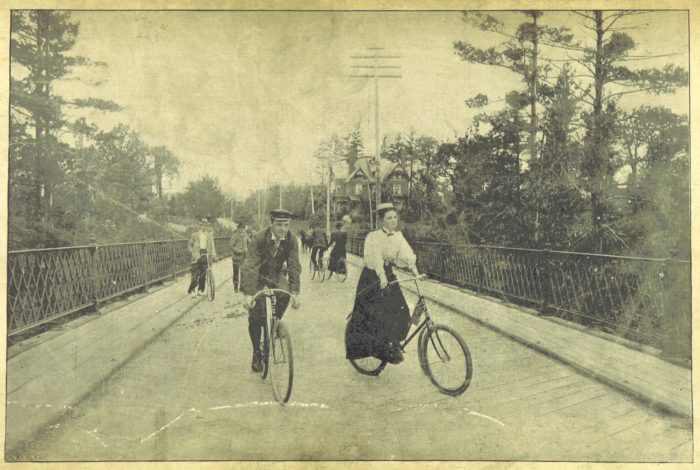Let me start with a story goes back to when I was 7 years old. I was in church with my dad, which was strange because I’m the oldest of 8 kids and usually if I was in church it was with my 7 other siblings and mom and dad. Maybe he wanted company that day, I don’t know.
Everything was fine until my nose started to run. Now, I had allergies as a kid, nothing serious, so I always carried a clump of Kleenex with me. I reached into my pocket, pulled out my Kleenex clump, and wiped my nose but it still kept running.
Soon the clump of Kleenex was a snotty mess so I secretly threw it on the floor of the church and immediately felt like a sinner for desecrating the Lord’s house with my snotty tissue. And my nose kept running.
If I had a long sleeve shirt I would’ve wiped it on my sleeve but I had a short sleeve shirt. I tried wiping my nose on my bare skin on the back of my hand but that was really gross and I started to feel really miserable because my nose kept running.
What I started doing was squeezing all the snot from my nose into my hand and wiping it underneath my pant leg. Soon my pant leg was wet and snotty and I almost started crying when my dad noticed my discomfort and asked me “What’s going on?”
I told him with tears in my eyes “Sorry Dad, I’m so sorry my nose keeps running and I don’t know what to do!”
He reached into his back pocket and gave me his handkerchief which solved the problem. After church, he asked “Why didn’t you tell me?”
I think I might’ve said that I didn’t want to bother him. But looking back, the truth is that I didn’t feel I was allowed to ask for what I needed. The church was more important, not talking was more important, not bothering my dad was more important than my discomfort. He had 8 kids and he seemed like he was bothered a lot.
That’s how I felt as a kid.
Maybe your childhood was different, but I know I’m not the only one that felt this way as a kid. Now I had and still have decent hardworking parents and I’m grateful. But the messages I got as a kid from the world around me went something like this:
· Who do you think you are? You’re not special.
· Don’t call attention to yourself, don’t toot your own horn
· Stay in your lane.
· Follow the rules
· Don’t be a bother
· Don’t take more than your share
· You only get what you deserve.
· Don’t rock the boat.
I think if you look for the hidden meaning behind these messages, I think it comes down to two very disempowering ideas: what you think and say doesn’t matter and what you want and need doesn’t matter. And this is a very unconscious. Nobody actually tells you that but that’s the message. We don’t think these things consciously either. But it’s kind of like a computer virus, a mind virus, operating in the background. Programming is a good name for it.
So as we grow up, and try to make our way in the world. We encounter challenges, we make mistakes, we fail to do what we set out to do and then we might even start to reinforce these negative messages with our own negative self-talk. And even as adults we have people reinforcing these things. Family members, bosses, religion: you are a sinner. And that starts to feed these mind viruses and they grow. It’s possible to find ourselves with the feeling that we need to apologize for who we are because we feel bad about ourselves. It’s possible for some people to get to the point where they feel they need to apologize just for being alive. And that’s a sad state of affairs. Some people overcompensate by being bullies or being demanding or obnoxious and that’s sad too.
These are the messages many of us receive and I know that for a fact after almost 20 years as a hypnotherapist working with thousands of clients. There’s only one word to describe these kinds of negative messages we get from the world. It’s all bullshit.
Speaking of a sad state of affairs, For most of my life, I believed I was fuckup.
Sorry, but that’s the word I used to myself. I believed I would screw it up. Whatever it was, job, relationship, life, whatever. I didn’t want to get married, have kids, buy a house or start a business. Why, so I could screw it up? So I would sabotage myself. With stuff like perfectionism. “If I can’t do it perfectly, I won’t do it at all.” That’s a very sneaky form of self-sabotage, which is something I struggled with a lot when I was young.
And so consequently, I was always asking myself one terrible question. What’s wrong with me?
As a hypnotherapist, I see things. I hear things. Some of my clients tell me that they get on social media. And they say oh look they’ve got a beautiful house, beautiful car. Look what they’re doing, wonderful vacations, nice restaurants. So it’s easy for them to think, “How come I’m not doing that? How come I don’t have that? What the hell is wrong with me?”
Now, we’re not talking about you of course. But you might know someone that can relate.
The only thing wrong with most people is that someone told them some bullshit and they believed it.
Mark Twain said: “The trouble with most of us is that we know too much that aint so.”
We believe what we’re told. That’s what we do as little kids. From the time we’re born until 8 or 9 years old we take in everything as absolute truth. So when people come to my
hypnotherapy office because they don’t feel good about themselves, or they feel less than, I tell them “Hey, It’s the programming. Just the programming. The mind viruses you caught from someone else. It’s not your fault. It’s not who you are, it’s just how you are thinking and what you believe, and the good news is that you can change your thinking and what you believe.”
And that’s what I want to talk about today. How to claim our rightful place in this world by changing what we believe. And guess what. You don’t need to do anything or accomplish anything or be anybody to believe that you are ok. It’s a decision you make. Because your value, your worth, doesn’t have to depend on anything out there, it comes from within.
The first step is to realize just how much BS there is out there. There is a lot. All the socialization that tells you that you’re nothing unless you have this or are doing this or making this. It’s hard to find the truth.
Let’s look for what’s true shall we? Here’s the interesting thing about truth. It’s self-evident, we should be able to see it for ourselves. We shouldn’t have to take anybody else’s word about what is true.
I can’t speak for you, but what is evidently true for me, is that I exist. I am. What that means is that I’m having an experience. Right now. That’s the only thing I can say for sure. I have an awareness that I am having an experience that I call life. This awareness is a fundamental quality of our being by the way. My awareness right now, in this moment, is that life is pretty darn good.
Look around you. Are you reading this on a computer in a comfortable house? I’m writing this on a computer in a nice house in a nice neighborhood. What are the chances of that? I don’t know but what I can tell is that right now, that’s pretty cool. I feel lucky to be here.
What did I do to deserve this? The answer is it doesn’t matter because deserves has got nothing to do with it. The idea that you only get what you deserve is just more bullshit. Plenty of people have what they don’t deserve and plenty of others never get what they do deserve. Would you agree? So let’s remove from deserves from the equation.
Because here’s the thing. Somehow, someway, I came into existence. I didn’t ask to be born but here I am. I’ve been given life and I consider that a gift.
If you can say to yourself, I exist or I am, then you’ve been given that gift too. And far as I know none of us did anything to deserve it. But here we are.
And look what you get as part of the deal. Eyes to see. A mouth to taste. A nose to smell. Ears to hear. A heart to feel. A brain to think.
And so, just by virtue of being born, you get the sun. The moon, the stars, the sea. You get mountains, trees, rivers, lakes. Flowers, clouds, rain, snow. All the beauty of the world is yours should you choose to enjoy it. You were gifted with 4000 years of music, 3000 years of poetry, literature. 50, 000 years of art. It’s yours. You inherited it.
You get to love, be loved and have your heart broken. You get to succeed and fail. You get to have challenges. If you didn’t have challenges you would invent some I can assure you of that. You get to be young and grow old if you’re lucky. You get to dream and realize your dreams. Or not.
All this just for being born. Hell of a deal. The universe or God or whatever must love you because it has seen fit to have you here now.
Sometime in the 90s I was sitting on a mountain looking out over a beautiful valley in the Catalina Mountains of Tucson Arizona. They call these mountains sky islands because you can drive from the desert and in 30 minutes be in lush pine forests.
A voice spoke to me. It might’ve been the voice of God or nature or those mushrooms I ate. But the voice said something really profound: You’re ok Ted. There’s nothing wrong with you. You’re just figuring it out like everybody else. You’re only human, and that’s ok. It’s good that you’re here. Don’t worry, we’ve got your back.
I never heard that before in that way. In way that was so validating. It took a while for me to completely get that, but I did and that shift of perspective changed my life and has brought me here today to share that message with you.
Ever seen Gone with the Wind? There’s a great scene. Scarlett O Hara is the protagonist. She grew up on her family’s plantation vain, self-centered, spoiled by wealthy parents. The civil war comes and sweeps away her wealthy lifestyle. She finds herself destitute and starving. She goes out to the fields to find something to eat but the only thing she can pull out of the ground is a withered carrot. She tried to eat it but gags. She falls to the ground miserable and crying. But then she stands up. She raises her fist to the sky and in a moment of desperation but also of empowerment, she says “As God is my witness I will never be hungry again.”
Have you ever made a declaration like that? Have you ever been down on you knees or with your back against the wall and you said “ I don’t care what it takes or what I have to do, I’m going to make this happen.”
Because that’s what we need to do.
If anything I said resonated with you today, then what you want to do is make a powerful declaration by calling on the powers that be and saying out loud or in the silence of your mind, “As the Universe or God is my witness I belong here. It’s good that I’m here. Even if I’ve screwed up. Even if I’m made mistakes. Even if I don’t have that thing that other people have even if I’m not doing that amazing thing they’re doing. Even if I’ve done things I’m not proud of even if I fuck it up, I’m doing my best, it’s ok that I’m here and it’s good that I’m here.”
I would suggest to you that this is the most powerful perspective that you will ever adopt. This is the most powerful thing to believe.
Reject any message you ever got from others or yourself that said that you are not good enough or less than or there’s something wrong with you. You are whole and complete right here, right now. You are unique and special and inherently awesome. This is your home. This is your life. Life is up and then it’s down, that’s life. It’s hard sometimes but that doesn’t mean that you suck.
Refuse to apologize for being alive, for being here now. Make a commitment to being unapologetically you. Embrace that fact that you are here now and that that is a good thing if for no other reason than because you say so. Believe you are here for a reason. Is that true? It doesn’t matter, it’s a good belief to have. It’s a good place to stand. Here’s a quote by Anonymous: The two most important days of your life is the day you were born and the day you find out why.
Stake your claim to all the joy and happiness and wonder and awe you can get your hands on. Be willing to receive what you didn’t earn or don’t deserve but also be willing to do something to attract what you want into your life. You have a right to ask for what you want and what you need and what you want and need is important. Life itself is a gift given to you for reasons we don’t understand, and we don’t have to.
Here’s another quote for you “We have a responsibility to love ourselves. If we don’t, we are contributing to the world’s problems.”
Marianne Williamson said that in her book A Return to Love. Here’s another quote from that book you might’ve heard:
“Our deepest fear is not that we are inadequate. Our deepest fear is that we are powerful beyond measure. It is our light, not our darkness that most frightens us. We ask ourselves, ‘Who am I to be brilliant, gorgeous, talented, fabulous?’ Actually, who are you not to be? You are a child of God. Your playing small does not serve the world. There is nothing enlightened about shrinking so that other people won’t feel insecure around you. We are all meant to shine, as children do. We were born to make manifest the glory of God that is within us. It’s not just in some of us; it’s in everyone. And as we let our own light shine, we unconsciously give other people permission to do the same. As we are liberated from our own fear, our presence automatically liberates others.”
Do whatever you can to liberate yourself from fear, from the bad things that happened in the past and from the BS. Do what you can to love and care for yourself. And above all, be grateful.
Listen to this podcast episode at the link below.
TedinYourHead.com
















